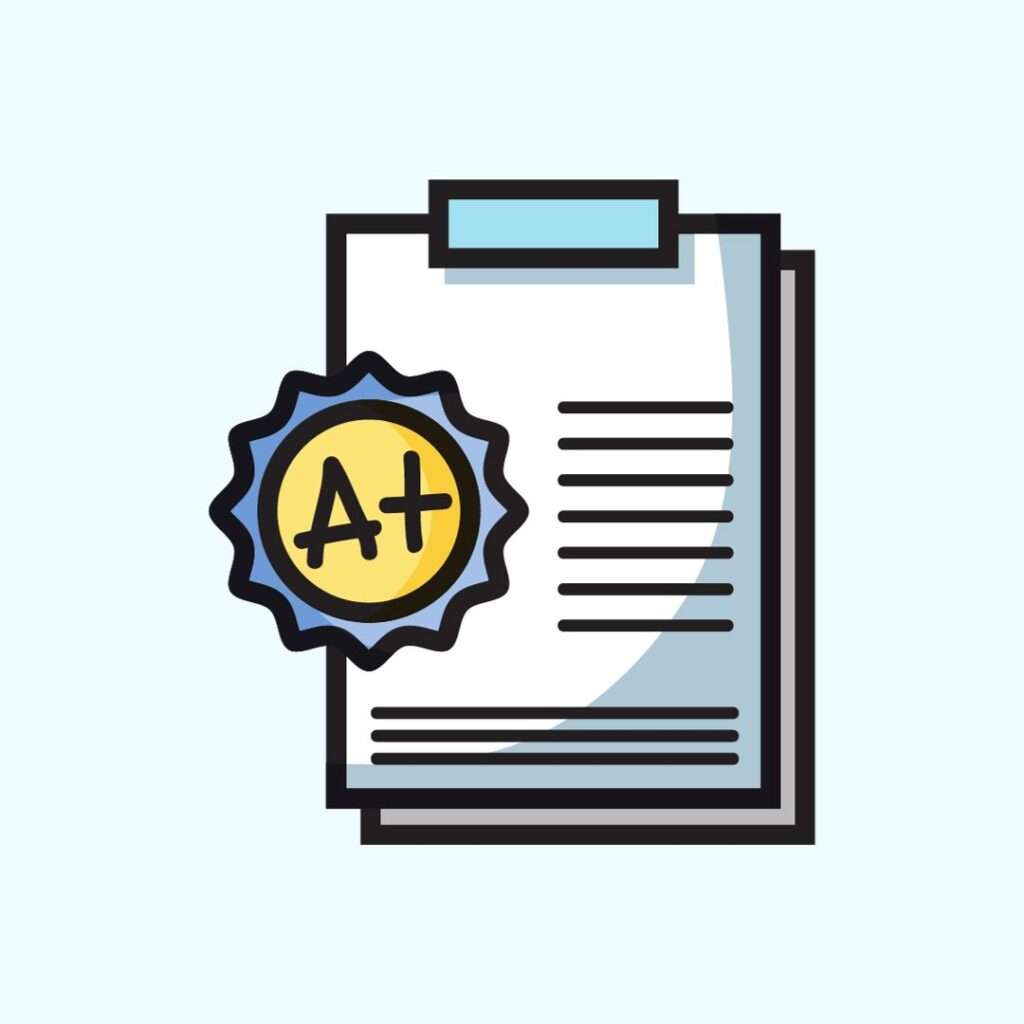Table of Contents
- Introduction
- Identifying Challenges in Academic Writing
- Analyzing the Root Causes of Roadblocks
- Strategies to Overcome Challenges in Academic Writing
- Future Challenges in Academic Writing
- Conclusion
Introduction
The article discusses challenges in academic writing. From crafting complex arguments to properly citing sources, many potential roadblocks can derail success. However, confronting these obstacles is critical for academic achievement. This write-up offers key strategies for tackling common challenges in academic writing so students can navigate potential barriers and empower their scholarly journey.
Academic writing requires mastering a diverse range of skills. Students must synthesize complex information, organize structured arguments, adhere to stylistic conventions, and accurately cite sources. For novice scholars, these multifaceted demands can feel overwhelming. Even experienced writers struggle with challenges like procrastination, writer’s block, and burnout when faced with rigorous academic writing tasks.
Overcoming challenges in academic writing is essential for succeeding in an academic context. Roadblocks impact assignment quality and grades and undermine scholarly confidence and progress. Tackling writing challenges head-on enables students to produce their best work, meet academic standards, and develop transferable skills for professional settings after graduation.
To help students navigate common roadblocks, this article provides concrete strategies across three key areas:
- Identifying root causes of academic writing challenges
- Implementing time management and organization techniques
- Utilizing resources for skill-building and continuous improvement
By taking proactive steps to understand and overcome obstacles, students can empower themselves to produce high-quality writing and achieve academic success.
Identifying Challenges in Academic Writing
Academic writing can be complex and challenging. The tasks involved—researching, analyzing information, structuring arguments, and citing sources properly—require advanced skills. Students’ struggle to navigate these demands impacts their performance and ability to succeed.
Academic writing entails learning and applying conventions like:
- Using an evidence-based approach
- Crafting a logical, cohesive narrative
- Adhering to disciplinary writing standards
- Appropriately integrating and citing sources
Mastering such multifaceted skills poses a hurdle for many students. Recognizing the intricate nature of academic writing is the first step to addressing the associated challenges.
Impact of Challenges in Academic Publishing
When students find academic writing overly difficult, the consequences can be far-reaching. Lack of proficiency in writing often translates into:
- Poor grades on assignments and courses
- Significant mental stress and anxiety
- Lower self-confidence
At a broader level, writing challenges also limit students’ ability to engage with scholarly ideas and debates in their discipline. Tackling academic writing roadblocks is essential for overall academic success.
Examples of Common Challenges in Academic Writing
Some typical academic writing struggles students face include:
- Overwhelmed by complex research assignments
- Unsure about using proper citation formats
- Difficulty with paraphrasing or summarizing sources
- Challenged by unfamiliar writing genres
Carefully evaluating the specific pain points around academic writing can help identify suitable solutions. The following section delves deeper into the reasons underlying these roadblocks.
Analyzing the Root Causes of Roadblocks
Challenges in academic writing often stem from a combination of psychological, cognitive, and external factors. By understanding the root causes behind these roadblocks, we can start to dismantle the obstacles impeding our writing progress.
Fear and anxiety are common psychological barriers that can make academic writing much more difficult. The blank page or screen can feel intimidating, leading to procrastination and avoidance. Perfectionism also hinders progress, as writers get stuck trying to craft flawless sentences and paragraphs before moving forward.
On the cognitive side, organization, working memory, and attention difficulties can make it hard to plan, research, and write effectively. Without strong executive functioning skills to manage these complex processes, writers struggle to convert thoughts into coherent writing.
Limited time is an obvious but critical roadblock. With papers and assignments piling up, it’s easy to feel overwhelmed and unable to dedicate sufficient time to each writing task. Distracting environments also divert focus, while lacking support systems reduces accountability and feedback.
Financial constraints and family obligations can also consume the time and mental bandwidth needed for academic writing. These external factors all converge to obstruct productivity and progress.
While psychological and external barriers contribute to academic writing challenges, adopting an adaptive mindset is key to overcoming obstacles. Viewing writing as a learnable skill rather than a fixed talent allows writers to persist through setbacks. Maintaining self-compassion rather than self-criticism also enables progress.
By monitoring inner dialogues and beliefs about writing, we can shift towards a growth mindset, constructive self-talk, and greater self-efficacy to conquer the multifaceted challenges of academic writing.
Strategies to Overcome Challenges in Academic Writing
To overcome the challenges in academic writing, it is essential to implement strategies that address both the difficulties’ root causes and the writing process’s practical aspects. Some strategies are categorized into three main areas: time management and organization, skill-building, and resource utilization.
Time Management and Organization
- Set clear goals and deadlines: Break down large writing tasks into smaller, manageable parts with specific deadlines. This can help reduce feeling overwhelmed and facilitate accomplishment as each part is completed.
- Create a writing schedule: Allocate dedicated time blocks for writing within your weekly schedule. Consistency can help to build a writing routine, making it easier to start each session.
- Prioritize tasks: Identify the most critical writing tasks and prioritize them. Use tools like the Eisenhower Matrix to determine which urgent and vital tasks to tackle first.
- Use project management tools: Digital tools like Trello, Asana, or even a simple spreadsheet can help keep track of research, drafts, and revisions.
- Eliminate distractions: Find a quiet space to write, use apps that block distracting websites, and turn off notifications on devices to maintain focus during writing sessions.
Skill-building
- Develop research skills: Enhance your ability to find and evaluate sources by taking advantage of library resources, online databases, and workshops on research methods.
- Practice writing regularly: Like any other skill, writing improves with practice. Engage in daily writing exercises, journaling, or blogging to refine your writing abilities.
- Learn citation and referencing: Familiarize yourself with the citation style required for your discipline. Use reference management software like Zotero, EndNote, or Mendeley to organize and format citations.
- Improve paraphrasing and summarizing: Work on these skills by practicing with texts relevant to your field. This will also help you avoid plagiarism and integrate sources effectively.
- Seek feedback: Share drafts with peers, mentors, or writing centers for constructive feedback. Incorporate this feedback to improve your writing.
Resource Utilization
- Writing centers and workshops: Many institutions offer writing support services. Take advantage of writing workshops, one-on-one tutoring, and peer review sessions.
- Online resources and guides: Utilize online writing guides, instructional videos, and webinars to learn more about academic writing conventions and styles.
- Collaboration: Form study groups or writing collectives with peers. Collaborating can provide moral support, accountability, and shared learning opportunities.
- Professional editing services: If resources allow, consider using professional editors to provide detailed feedback on structure, coherence, and grammar.
- Mental health and well-being support: Recognize when writing challenges stem from broader well-being issues and seek support from counseling services if needed.
By systematically applying these strategies, students can address the multifaceted challenges of academic writing. It’s important to remember that improvement takes time and persistence, and setbacks are a natural part of the learning process. Through deliberate practice and utilization of available resources, students can enhance their academic writing skills and overcome the barriers to their success.
Future Challenges in Academic Writing
The future of academic writing is poised to encounter various challenges, many of which are influenced by the rapid pace of technological advancement and changing academic landscapes.
One of the future challenges in academic writing is the integration of technology, which, while offering increased accessibility and efficiency, also introduces potential issues such as the blurring of formal and informal writing styles and an influx of text-speak that may harm grammar skills.
Moreover, the rise of error-checking software and blending informal touches in academic writing could impact the traditional rigor and formality of scholarly work. The pressure to publish quickly, a phenomenon known as “fast research,” can lead to less clarity and increased jargon, making academic texts more opaque and difficult to understand.
Another future challenge lies in academic publishing, where the shift toward open access presents hurdles related to quality control and financial sustainability for publishing houses. The integrity and reliability of non-peer-reviewed content, especially with the rise of preprint publishing, also raise questions about the credibility of information consumed by audiences.

Accessibility remains a significant concern, as technological inequities across different regions could exacerbate disparities in access to research. Furthermore, the complexity of the peer review system and language barriers for authors continue to be obstacles to disseminating knowledge.
Conclusion
We have discussed some challenges in academic writing. Academic writing is an intricate task that requires a sophisticated blend of cognitive abilities, discipline-specific knowledge, and technical skills. Its challenges are varied and often profoundly interwoven with psychological and external factors. From the daunting prospect of crafting well-researched arguments to the meticulous task of proper citation, students face a gauntlet that tests their intellectual mettle and personal resilience.
However, these challenges, while formidable, are not insurmountable. By identifying the underlying causes of writing difficulties and implementing targeted strategies for time management, skill-building, and resource utilization, students can transform their approach to academic writing. This transformation is not merely about achieving higher grades or producing polished papers; it is about embracing a growth mindset that views challenges as opportunities for learning and development.
The journey through academic writing is as much about self-discovery as it is about scholarly communication. It demands persistence, adaptability, and a willingness to seek out and apply constructive feedback. As students navigate this path, they build not only their writing prowess but also a set of transferable skills that will serve them well beyond academia.
Ultimately, the endeavor to master academic writing is a testament to the enduring human capacity to learn and excel. With the right mindset and strategies, every student has the potential to unlock their academic writing abilities and chart a course for success in their educational and professional pursuits. Let us carry forward the message that academic writing, though fraught with challenges, is a journey worth embarking on, for it lays the foundation for a lifetime of critical thinking, effective communication, and intellectual engagement.
